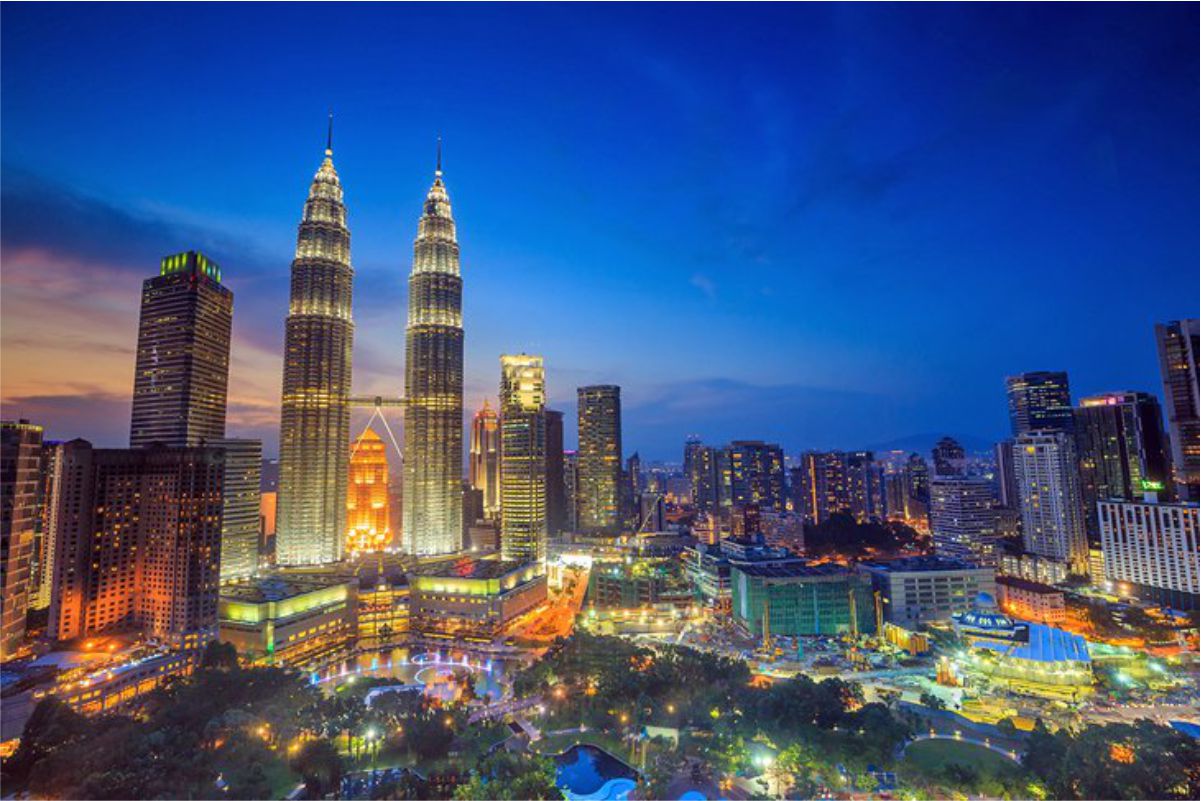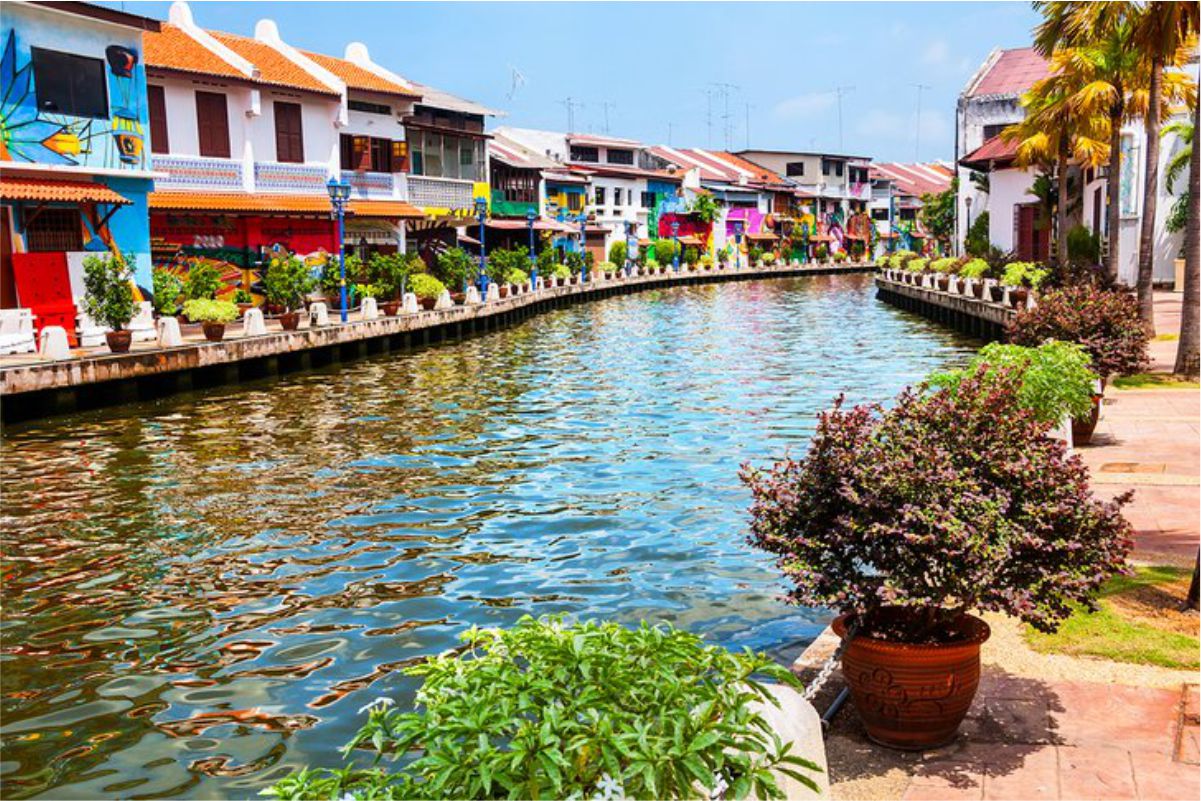
Kuala Lumpur
Malaysia's capital and largest city has much to
offer travelers. Perhaps best known for the Petronas Twin Towers (the world's
tallest twin towers), KL is a very popular tourist destination and routinely
makes the list of top 10 most visited cities in the world.

George Town
The older part of Malaysia's second-largest city
has been named a UNESCO World Heritage Site–but George Town is just as famous
for its food as it is for its architecture. Known as "the food capital of Malaysia,"
George Town offers some of the best street food in Asia, best experienced in
places like seafront Gurney Drive and Chulia Street, a popular backpacker's
destination and one of the oldest streets in the city.

Gunung Mulu National Park
The park, named after Mount Mulu, attracts
visitors from all over Asia who come here for trekking, caving, hot springs,
and the natural beauty that caused this place to receive a UNESCO World Heritage Site
classification.

Kuantan
Because of its location right against
the South China Sea, it's perhaps no surprise that Kuantan's main call to fame
is its beaches. Teluk Cempedak Beach is just minutes from the city center and
offers a tree-lined, clean shoreline, while nearby Cherating Beach is home to a
turtle sanctuary, as well as a
cultural village that produces and sells traditional batik.

Perhentian Islands
These coral-fringed, secluded islands offer
plenty of opportunities for kayaking, exploring, snorkeling, and scuba diving (including the
popular site of a sugar hauler wreck), as well as a chance to volunteer with
local organizations in green and hawksbill turtle conservation efforts.

Borneo Rainforest
The island of Borneo (which is divided and
belongs partly to Malaysia, Indonesia, and Brunei) is densely covered in one of the oldest rainforests in the world
and serves as a natural refuge for endangered species, such as the eastern
Sumatra rhino and the Bornean orangutan.

Langkawi
A group of 99 islands off the northwestern coast
of Malaysia, Langkawi is home to three protected Geoforest parks and many
coconut tree-lined shores that are among the best beaches in Malaysia. Some
beaches, like Pantai Cenang beach, are very popular with tourists, while
beaches on the smaller northeastern islands have a backdrop of limestone cliffs
and are more secluded.

Cameron Highlands
The Cameron Highlands is a hilly region with a long tradition of tea growing
on the sloping mountainside. The tea plantations are still a major attraction
today and one of the most photographed spots, but the Cameron Highlands are
also home to lavender and strawberry farms; orchards; herbal gardens and
nurseries; and the Mossy Forest boardwalk, an always-foggy tropical evergreen
environment with designated footpaths to see the local flora and fauna up
close.

Taman Negara
A protected area inhabited by a
130-million-year-old deciduous rainforest, Taman Negara offers activities and
attractions to last for days. In addition to jungle trekking and bird-watching,
visitors come here to climb Mount Tahan (considered one of the hardest
hikes/climbs in Malaysia), try the canopy walkway, or jump on the Lata Berkoh
river rapids.

Kota Kinabalu
Located against the South China Sea, the capital
city of Kota Kinabalu or KK occupies the northern section of Borneo and is
surrounded by virgin forest and large mountain ranges.

Batu Ferringhi
Technically a suburb of George Town, Batu
Ferringhi is a famous beach destination for both locals and foreign visitors
with plenty to offer to both sunbathers and those looking for an active holiday
under the sun.

Ipoh
The
third-largest city in Malaysia is famous for its colonial-era architecture,
traditional cuisine (which combines influences of Chinese, Indian, and Malay
food), and beautiful unspoiled nature. Ipoh's Old Town is near the Kinta River,
and it's a great place to see Chinese shophouses and the narrow "Concubine
Lane," a chic area full of restaurants, pop-up stalls, and gift shops.

Malacca City
Malacca City has been an important port town
since the 15th century, though today it's best known for its colorful heritage
buildings and fun cultural attractions. This quaint city is best explored on
foot, so you can truly appreciate the eclectic mix of colonial and Peranakan
architecture all around.

Tioman Island
Tioman is the default destination for those
looking for a simpler, rougher beach life – a place where beaches remain
underdeveloped, there are few roads, and you're likely to share the sand with
the occasional macaque or other wildlife as you walk around the island.